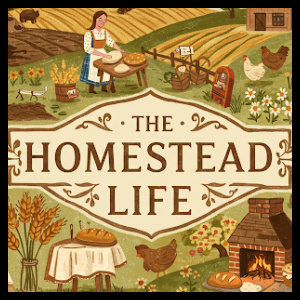There is nothing like the smell of a working beehive. When you open the lid on a nice warm day, the mouthwatering aroma of warm honey just wafts out, smelling even better than the best Amish doughnut you’ve ever eaten. That’s saying something.
Beekeeping can be a rewarding business or hobby for your homestead. Aside from the obvious benefit of honey on your toast, bees may help pollinate your garden and fruit trees. Bees produce valuable products like beeswax, bee pollen, propolis, royal jelly and bee venom. Bee products can help with allergies and are mainstays used by naturopaths.
As you consider beekeeping for a business or personal hobby, here are some important questions for you to consider.
1. Is your property zoned for agricultural activities? It’s important to check this out before you begin. Your county planning and zoning commission can answer this question if you’re unsure.
2. Do you have neighbors close by or a homeowner’s association that may interfere with your operation? This isn’t necessarily a deal breaker. There are property modifications that can prevent bees from becoming a problem for neighbors. You can choose docile types of bees for your hives. Providing factual information on bees may also help reduce neighbors’ concerns.
3. Are you physically able to maintain your operation? Sure, bees themselves aren’t heavy, but a hive full of honey is. A full honey super can weigh 80 pounds or more. Just as with other types of living farm creatures, you will be working out in the weather, to some degree, year around. There are workarounds that can make the job easier, but even so, beekeeping is quite physical. Consider the health needs of your family as well. Clearly, if anyone suffers from allergies to venom from bee stings, you’ll need to seriously consider whether you should raise bees. Anyone who works around bees will likely be stung a few times. It just happens. Many experts recommend keeping an epinephrine injector pen on hand in case of an emergency allergic reaction. Even if nobody in your home is allergic to bee stings, the pens are often recommended. Why? Because allergic reactions can occur anytime, even when there is no history of reactions. As always, discuss this with your trusted medical practitioner to make the right decision for you and your loved ones.
4. Is your homestead a “good home” for your bees too? Bees require at least eight hours of sun a day and access to good sources of pollen. They also require safe access to water. Ideally, the more your homestead can naturally provide food and water sources, the better. Otherwise, it may become necessary for you to supplement. The sunlight is a priority because it helps to mitigate mites, which can destroy your hive.
5. How’s the weather there? Shifting weather patterns and other environmental concerns have impacted many beekeepers, myself included. In recent years, we’ve had unseasonably chilly springs with massive amounts of rain and flooding. We also now have sustained high winds for weeks on end. All of these factors impact bees, which will not forage in windy or rainy conditions. Altered weather patterns impact the growing season and may reduce or eliminate food sources. If this occurs on your homestead, you’ll need to supplement your hive by feeding and possibly develop other ways to support their health.
6. What do you know about your neighbors and what they grow? It matters. Whether your neighbor grows veggies or violas, it’s worth your while to know what sort of pest control they use. You don’t want your bees feeding on crops or flowers treated with insecticides. You certainly don’t want them close enough to the spray to be affected. It’s worth learning about what your neighbors use so you can develop a plan to protect your bees.
7. What color are the animals on your homestead? Wait, say what? Yes, it’s actually a thing. Even docile bees have been known to attack black animals and people wearing black clothing. This is one reason why most beekeepers wear white or light colored protective gear. No one knows the reason bees become defensive around the color black. Some experts suspect it may be an instinctive reaction because common hive threats, such as bears and raccoons, have dark coats or dark markings.
8. Do you know what’s lurking in your neck of the woods? Bees, like most living things, have predators. Bears, raccoons, skunks, certain reptiles, rats, mice, wood roaches, and others either feed on hive contents or the bees themselves. And of course, the infamous varroa mites. Knowing what you’re up against will help you determine what’s needed to protect your bees.
These are just a few of the things to consider before you venture into beekeeping. If you feel like this hobby or business is for you, check in with your local beekeeping clubs or cooperative extension office. They can put you in touch with local beekeepers who can give you insights on the industry in your area. They may also host beekeeping classes, and they are well worth your time.



Recent Comments